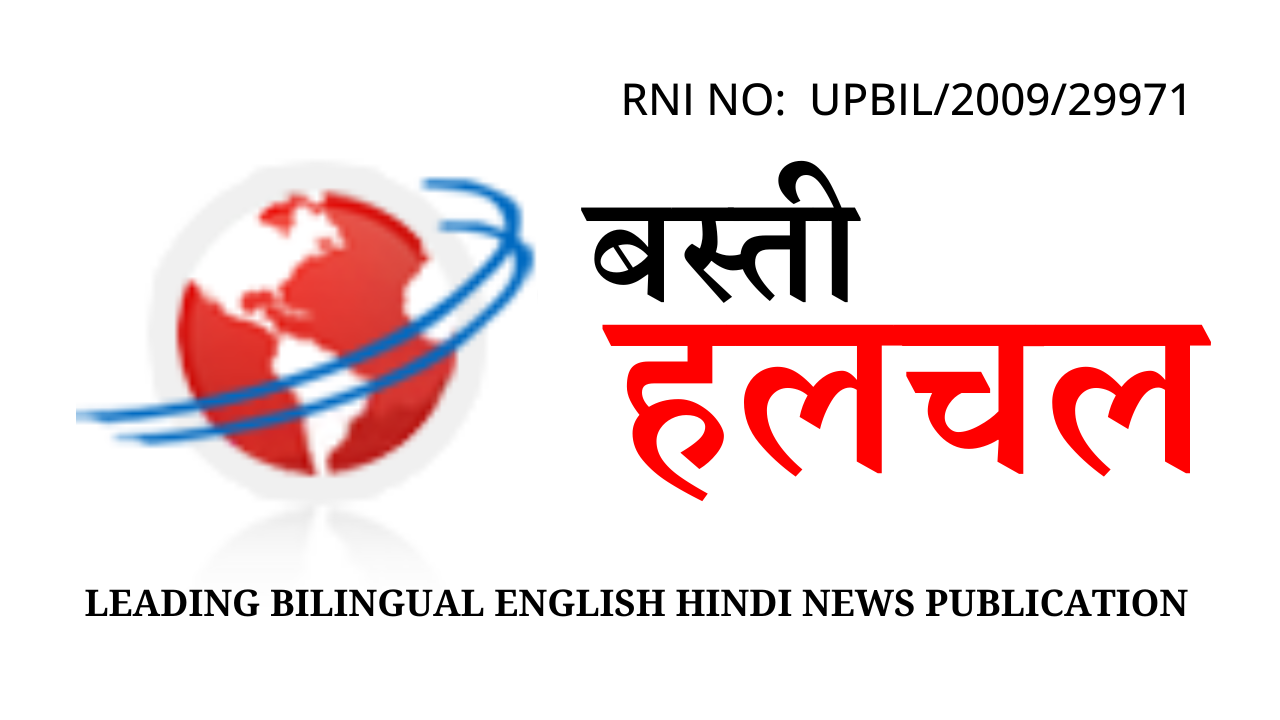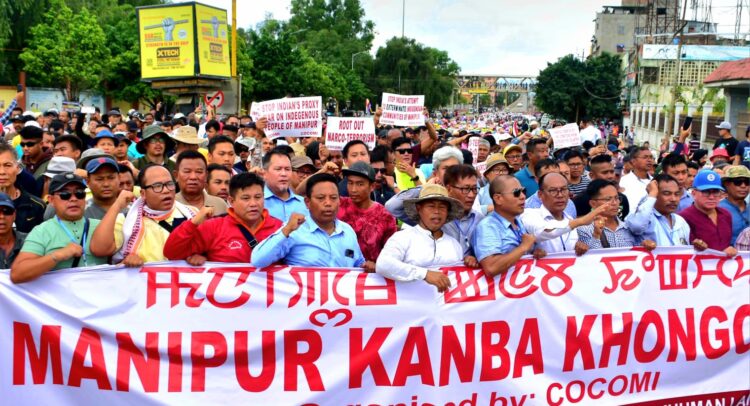Asem Bhakta, Special Correspondent North East
Imphal: A massive public rally at Khuman Lampak saw nearly Tens of thousands of people belonging from Manipur’s indigenous communities—Meitei, Naga, and Meitei-Pangal—took out a massive rally at Imphal under the banner”Save Manipur Rally”demanding peace and protection for their state while calling on the Central government to stop its “divide and rule” policy. Organized by the Coordination Committee on Manipur Integrity (COCOMI), the rally presented an eight-point charter of demands, including the protection of Manipur’s territorial integrity and the deportation of “illegal Chin-Kuki-Mizo narco-terrorists.”
The event began at the Thangmeiband Athletic Union (THAU) ground and concluded with a public meeting at Khuman Lampak. Prominent speakers, including retired Session Judge Aribam Noutuneshwari, condemned the Central government for turning Manipur into a battle zone. She compared the situation to Bangladesh, where the Prime Minister is reportedly expelling Kukis to prevent the creation of Kukiland, while India’s central leadership remains silent on the ongoing violence in Manipur.
Retired District and Sessions Judge A
Noutuneshwari responsibility to protect Manipur rest on all communities except Kukis.
The Prime Minister and Home Minister of India must protect the country’s Constitution and deliver eco-nomic justice, social justice and political justice to the people of Manipur, she said.
She then asked why the government of India has been treating all the indigenous peoples of Manipur as second – class citizens.
She also questioned the State Government’s failure to put any pressure on the Central Government to protect the Meitei community even when the very survival of the Meitei community is threatened.
She further asked, “why are our MLAs only holding to their posts and keeping mum when their Kuki colleagues are openly demanding separate administration?”
Social activist and renowned artist Shamurailatpam Nabachandra Sharma also spoke at the rally, criticizing the central government for ignoring the conflict between Kuki narco-terrorists and Manipur’s indigenous people. He lamented President Droupadi Murmu’s failure to address the Manipur situation in her first speech to the joint session of Parliament following the formation of the third National Democratic Alliance (NDA) government. Nabachandra Sharma stressed that “breaking the state of Manipur is breaking Bharat,” arguing that the actions of the BJP-led Central government are contrary to the wishes and aspirations of the Bharatiyas.
Joychandra Konthoujam, President of UCM, accused the Central government of playing divide and rule and called for the immediate expulsion of illegal migrants and narco-terrorists. L. Jadu, a member of COCOMI, stated that “those who believe in the unity and administrative integrity of Manipur, regardless of their community, even if they belong to the Kuki community, are welcome to support us.”
Laishram Somorendro, Convenor of COCOMI, highlighted the government’s neglect, noting that the violence in Manipur was not mentioned in the President’s speech in Parliament. He stated that the rally aimed to show the world how the Indian government views the people of Manipur and demanded an end to the proxy war in the state.
Independent MLA Nishikant Sapam has categorically expressed full support for maintaining the
Manipur’s territorial integrity of Manipur is not negotiable under any circumstances, while taking part in the rally. Emphasized the need for effective implementation of the National Register of Citizens (NRC) to address the influx of illegal immigrants. Lourembam Nganbi, president of AMKIL and a COCOMI member, criticized the governments of Manipur and India for ignoring their plight, stating that they are being invaded by Kuki terrorists and those under suspension of operations.
The rally underscores the deep-seated frustrations and fears among Manipur’s indigenous communities, reflecting a broader sentiment of neglect and marginalization by the Central government. As the conflict continues, the demands for peace and justice in Manipur are likely to grow louder, with significant implications for the region’s stability and the broader political landscape in India.


